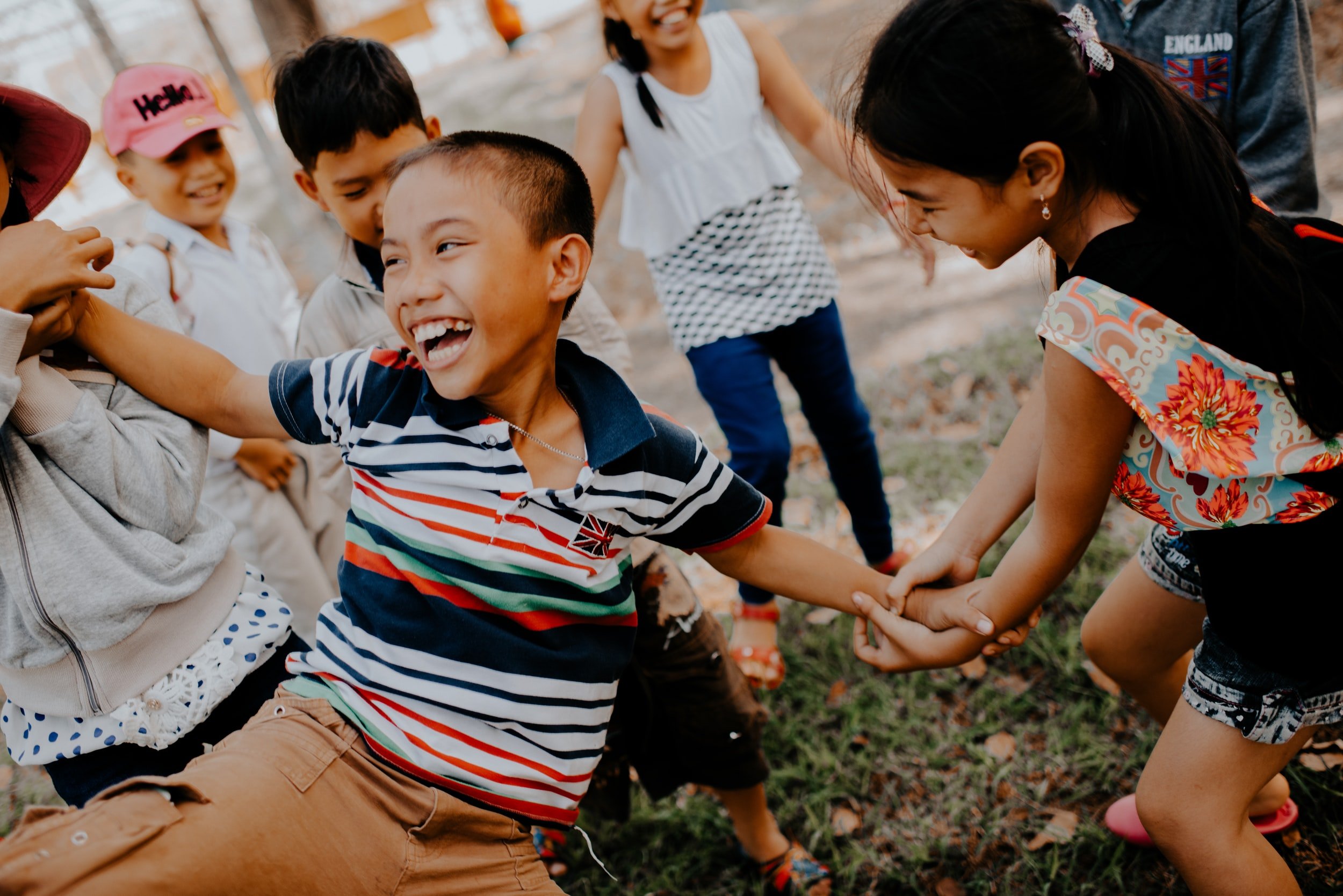
This Mental Health and Wellness Expert Really Wants You to Get Kids Off Screens and On the Move More
by Steven John
We all know too much screen time is bad for kids, right? Seriously, at this point we all know it. But so too do we all know we should brush our teeth at least twice a day, floss at least once, avoid too much refined sugar, eat more veggies, devote more time to sleep, exercise more and sit less, and on it goes.
Why is it that we can know all these things for such certainty and yet take too little action? Yet then with other things we also know are important, like wearing a seatbelt while driving, properly handling and cooking foods, or taking medications, it’s so easy for most of us to stay the course? Maybe it’s because with things like the seatbelt or the risk of sickness (whether from improperly cooked steak or skipping medicine alike) the potential negative results are so clear cut?
When you really understand what’s at stake when children spend too much time glued to screens and too little time being active, outdoors, and on the move, you may start to see a glut of screen time in with that second set, though. Because excessive screen time, along with a dearth of healthy, active play and exercise, is not a small matter. At all. But you don’t have to take our word for it, because we talked to an expert.
Dr. Dannette Berksteine, Core Counseling Faculty at University of Phoenix, has years of experience dealing with the mental, social, and emotional wellbeing of youths and young adults, and in those years, she has picked up plenty of facts and figures, developed plenty of ideas on everything from screens to self-regulation, and she has gained plenty of wisdom that can help you shift your thinking from: “I really should limit the kids’ screen time” to: “OK, we’re limiting screen time. And we’re going for a hike.” We caught up with her via Zoom.
We read that this generation of kids is having more trouble with self-regulation – some of that is based on screen time, more recently some is based on the pandemic, but can you just, broadly speaking, explain what self-regulation means? And what it looks like?
“OK! So we think about self-regulation, particularly with children, as their ability to be able to self soothe, right? It’s their ability to be able to just calm down and not get overly excited. A lot of times when we look at children who have extreme tantrums, particularly when we are talking about taking screens away – and I've witnessed on several occasions, and I'm sure you have as well, just out in restaurants, and all of the parents and all the children, and everybody's at the table at dinner, and everybody has their head buried in a screen, and when the food arrives – when the parent decides to take that screen away, we see a lot of that dysregulation in terms of that behavior. The ability for [a kid] to be able to separate themself from those screens, I think is extremely important, but also the ability of the family to have some boundaries around that helps with self-regulation as well.”
What does healthy screen time look like, based on hours per day? What is a healthy amount of screen time?
“Well, when we look at the statistics from the Centers for Disease Control, typically all children between the ages of four to 18 should have no more than two hours of screen time. And according to the Academy of Child and Adolescent Psychiatry, children under three should not have any screen time at all. When people hear that, I know, they go: “Oh my goodness! Are you serious?” Because it's almost like our children are coming out of the womb, not only with the ability to use technology, but to use it very effectively. But there's so many harmful effects as it relates to having that surplus screen time. As we mentioned, the inability to regulate, the inability to calm, the inability to soothe without having that screen as a medium or method to be able to calm. You lose a lot of that ability of self-regulation.”
“Another piece with that extensive amount of screen time we see is that oftentimes children are very sedentary. And so it promotes a sedentary lifestyle that leads to not only obesity with children, but also leads to more effects, such as anxiety and depression and social isolation because all of the contact is not with humans, but the contact is here on the screen.”
How are physical and mental health linked in children?
“Closely! So physical and mental health is huge with children. Particularly when we think about all of the good things that physical activity adds. Not only does it reduce the amount of stress, but also it helps children with the ability to be able to sleep well at night. And so when we think about children who may suffer from some insomnia or kids who just may have problems with their sleep cycle, as a result of, one, going back to too much excessive screen time, particularly at night, and then, two, just being sedentary, and so not really getting that good quality of rest, having a lot of restless sleep. We know that when you have a lot of irregular cycles in your sleep cycles, you also wake up very moody. And so we see some personality changes with children who are not actually getting that quality sleep, which once again, activity contributes to that.”
We all benefit from routine, kids especially, but we also benefit from occasional breaks in the routine, whether it comes in the form of an afternoon hike or a vacation. What are some of the benefits for children of breaking the structure and of getting them to try something new, to try maybe a hike, maybe a camping trip? And what are some ways to make those breaks in the routine not be deleterious to the kid?
“Well, one of the things that – I'm going to date myself – one of the things that's important is that activities should be fun, and when I look outside in my neighborhood, I don't see a lot of children doing things like hopscotch, like just using chalk in their driveways or sidewalks, and just making activities that are just fun and creative. And so what's so important when you set those boundaries is that we have to be realistic. We are in the 21st century, and technology is here and it's not going anywhere. We're going to see it more and more advanced. So we have to be realistic. You set those boundaries, you set that appropriate time in terms of your two hours throughout the week when they will just [be doing their thing] and often on screens.”.
“But I also think it's important to do fun things like just get on your bike and ride, and do it as a family. We can tell kids to go out and play, but we have to model that behavior for them as parents and as their guardians. And so I think it's so important that, as a family, just getting out, riding a bike on a Saturday is important. Maybe going to your local park and just throwing a frisbee around, just very simple things like that, because one of the things is that as we live in this society, we tend to think that everything has to be done on this big level, like we have to pack up the kids and take them away from the weekend and that kind of thing, but just a little break in the routine can be great. Just saying: “Hey, let's just go to the park and let's just hit the ball around a little bit, just doing those types of things to make that connection with each other make a difference!”
What are some of the benefits of getting kids outside into nature more, which granted for some kids might mean Central Park, for some kids it might be packing them up and getting them to the mountains?
“Me, I'm very simplistic. I'm from Savannah, Georgia, and I like the simple things in life. And so when we think about getting into nature, it can be really just taking a walk; just going outside. Exposing your children to different things out there. I mean, I'm a big fan of ladybugs and butterflies. To me, you have nature just in your backyard. And so just going outside and exploring some of that, I think, is huge. There's been a lot of research around the importance of nature and its ability to heal. And so I think we've seen a lot of that, particularly during the pandemic when individuals were unable to go outside and didn't get the vitamin B that they needed.”
“And so not only is it physically healing, but it's also emotionally and mentally healing as well to just be in nature. And so I just encourage people to do simple things like going outside and talking about the flowers that you see, talking about the bugs. We're almost in this space where kids are afraid of bugs. Well, we used to catch bugs and put them in pickle jars when we were little! And so I just think bringing back some of the basics; basic things in terms of being creative and allowing children just to explore and have fun is important.”
What are some ways that parents can start to introduce kids who are not that comfortable with nature to the outdoors and that world beyond the screens?
“We have so many advances in terms of technology and apps and we want to pull them away from the screen so much of the time, but I do believe that there is beauty in the ability to be able to learn a lot with this technology. So look at some of the different software that will help introduce them to [nature], because that learning piece is fun, but then once you use that software or app to introduce them to that activity, then go actually enjoy it outside. Think: “Hey Johnny, we looked at the daddy long legs on that app – now let's go outside and see if we can hunt for one!” They have technology with star gazing, lots of neat apps kids can use to go outside at night and here you have an app based learning activity, but it's fun and it gets them out and about as well.”
“Children live what they learn, and it goes back to the parental modeling. So we think, what does the free time look like for the parents? Oftentimes unstructured time for parents looks like doing more work or just being on their screens. So I go back to, once again, just go to the park as a family, go for a hike, have fun, whatever that looks like for your family and know that grounding in nature is about getting to that level of freedom and fun while you’re out there.”
Headshot C/O Dannette Berksteiner





